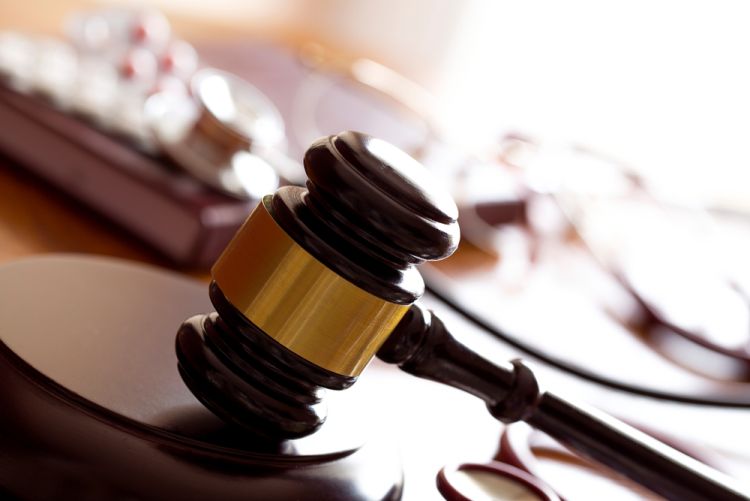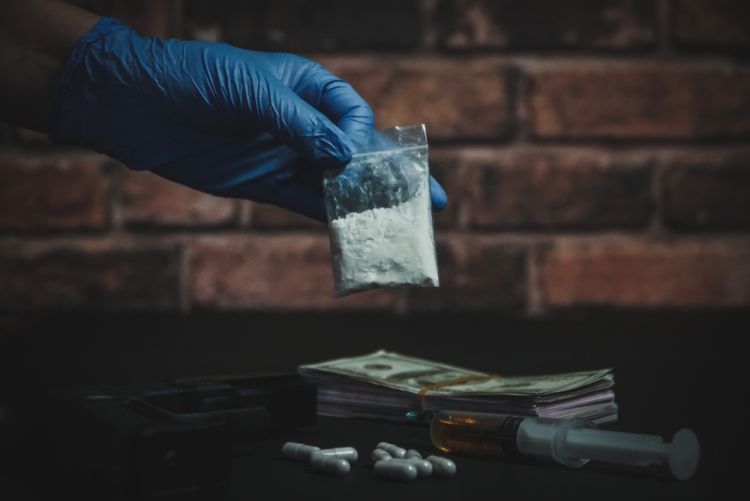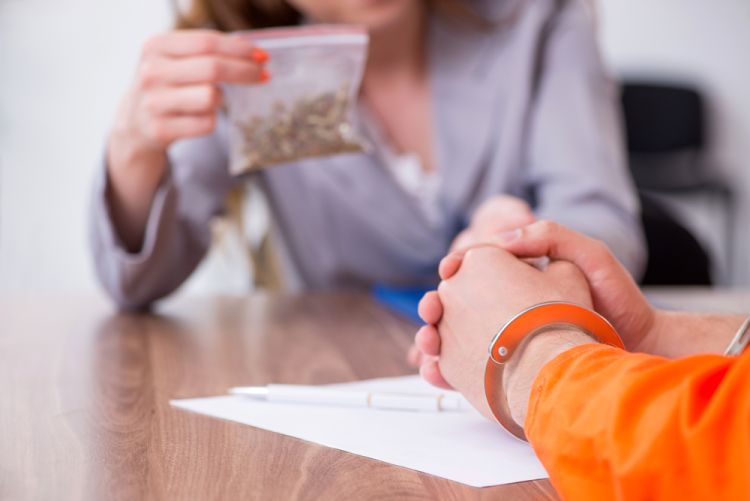
According to the Australian Bureau of Statistics (Prisoners in Australia) 2023 source, 11.7% of all sentenced prisoners have committed drug offences as their most serious offence.
If you’ve been accused of drug possession, trafficking, or some other matter, this can affect your relationships, your career, and even your liberty. It’s important to have a reliable drug offence lawyer in your corner, and you may be wondering what kinds of questions will be useful to you.
This article will briefly explore drug offences and how they can impact you, how you know your lawyer of choice is right for you, and questions you can ask to give you peace of mind.
In Victorian law, a ‘drug’ means a drug of dependence, and a full definition is available in Section 4 (1) and Schedule 11 of the Drugs, Poisons, and Controlled Substances Act 1981 (‘Vic’) (‘DPCS Act‘). Amendments to this act in 2017 added synthetic cannabis and other synthetic substances to the list of drugs of dependence, including ‘analogues’ of drugs.
The DPCS Act creates these categories of drug offences: use, possession, trafficking, and cultivation. Use and possession offences are less serious than cultivating and trafficking offences. Let’s take a look at the other Victorian State Drug Offences.
For an indictable offence under Section 73 of the DPCS Act, the prosecution can prove ‘possession’ by relying on the common law or by relying on the deeming provision or extended meaning in Section 5 of the DPCS Act.
Under common law, a person is in possession of a drug if they have physical control or custody of the drug, and the prosecution must prove the person knew of the presence of the drug and that the person intended to possess it.
There is also deemed possession or reverse onus if the court is satisfied that the substance found on the premises is an illegal drug and the premises were occupied by the accused.
According to Section 72B, cultivation of a non-commercial quantity of the narcotic plant is an indictable offence triable summarily. A narcotic plant includes the cutting of the plant, whether or not it has its roots. The more commonly known narcotic plants are the coca plant, the opium poppy, and cannabis.Section 70 (1), cultivating includes sowing, growing, planting, tending, grafting, dividing, transplanting, nurturing, or harvesting. In this case, it is a defence to not know, suspect, or reasonably have been expected to know that the plant was narcotic.
Trafficking narcotic drugs is an indictable offence and can be tried summarily for amounts under a commercial quantity. At common law, trafficking means ‘movement from source to ultimate user in the course of trade’ and additionally requires at least an activity performed in a commercial setting and contact between the alleged trafficker and at least one other person.
This offence can be proved by inference or a conclusion on a set of facts, direct evidence such as observing a sale, or admission, which is a confession to the police.May Lawyer’s drug offence lawyer supports Ringwood, Geelong, Dandenong, Cranbourne and residents across Melbourne. You don’t need to worry about the outcome.

Make sure that your criminal lawyer understands the complex landscape of drug-related charges and how to navigate them, both in court and out of it. In terms of drug-related offences, these can range from possession to trafficking and supply, and your lawyer needs to know how to defend you. Here are some skills that are non-negotiable.
Look at your drug offence lawyer’s legal experience. Consider whether your lawyer has experience in summary and indictable offences, bail applications, jury trials, intervention order proceedings, committal proceedings, or representation at Royal Commissions, IBAC, or the Victorian Ombudsman.
For example, Will May at May Lawyers is one of the few criminal defence lawyers in Australia who is an Accredited Specialist in the field of criminal law and holds accreditation from the Law Institute of Victoria. When you invest in a lawyer for your case, you want the best in terms of hands-on experience, developing a powerful defence strategy, and evidence of case success.
What is the potential outcome of your case? Although a drug offence lawyer cannot guarantee you a result that works in your favour, an assessment of your case can help to set realistic expectations and inform your decision-making process.
How will a drug offence lawyer develop a defence strategy for my case? This can give you an understanding of your lawyer’s thought process and approach to building a strong strategy for your case.
If you have just been charged, a police officer will provide you or your lawyer with a brief of evidence, a document containing a description of allegations against you, photographs, and witness statements. You are presumed innocent, and police need to prove your guilt, but whether they can depends on what’s in the brief.With a proper case assessment and reading your brief, a lawyer can explain the evidence against you, whether you have a defence, and can advise you of likely sentences if you’re found guilty.
What is your fee structure and estimated cost for my case? Understanding your lawyer’s fees and additional costs (if any) upfront will help you budget and avoid surprises later!
It’s a good idea to ask about expert witness fees, court filing fees or document costs. Being charged a fixed fee rather than hourly is common, so you’ll be aware of the costs upfront. Always make sure that the agreement of these costs is in writing.
How long has your lawyer been practising, and what is their success rate or track record with cases specific to yours? Research your drug offence lawyer of choice and whether they are right for you. For example, May Lawyers has many case studies for drug-related offences:
A client was charged with trafficking a commercial quantity of the drug butanediol. Police had searched her home and located several bottles of the drug in a safe. Analysis of the drugs showed they weighed 2.1kg, a commercial quantity of 2kg. If the client were to be found guilty, it would have had to be heard in County Court and would have likely involved a long term of imprisonment.
Another law firm has advised her to plead guilty to this charge, but we argued to the prosecution that our client may not have known there was over 2kg of the drug and, therefore, did not have the intent to traffick a commercial quantity.
In this case, the prosecution accepted our argument and withdrew commercial quantity. Our client pleaded guilty to trafficking and was sentenced in the Magistrates’ Court to a Community Corrections Order.
If you are wondering how long your case will take, it depends. A criminal trial can take 18 months to 2 years to reach after you’ve been charged. A Magistrates Court case might take from a few months to a year, depending on whether you’re fighting charges or pleading guilty.
Are you worried about obtaining a criminal conviction, drug possession charges, or how your criminal history will impact your case? As a drug offence lawyer serving Fairfield, Sunshine, Northern Suburbs, and across Melbourne, we are a law firm you can trust.

Let’s look at some questions you can ask your drug offence lawyer if you’re worried about a criminal charge.
If police ‘reasonably believe’ you possess or are selling drugs, they can search you or the car you’re in without a warrant.
You can avoid a criminal record by asking for a diversion. Legal representatives such as May Lawyers can support you throughout this process.
Penalties can increase with the amount of drugs, such as traffickable quantities, commercial, or large commercial.
No, but you can receive a fine for possessing under 50g of cannabis.
With the exception of small amounts of cannabis, the maximum penalty is the same regardless of the type of drug.
You have the right to not answer questions and the right to call a lawyer for legal advice, a friend or family member, or the consular office if you’re not an Australian citizen.
It is a defence if you didn’t know the drugs were in your possession. For example, a friend left them in your house or car without your knowledge.
A visit or video conference with them can be arranged free of charge to discuss their case.
If you’ve been sentenced or found guilty in the Magistrates Court, you have an automatic right to appeal the decision to a Judge of the County Court. The Judge has the power to rehear the case and find you not guilty or replace the sentence.
There is nothing stopping you from giving it a go, but you might not enjoy the end result. Courts have a number of sentencing options, and the only way to achieve the ideal outcome is to hire a competent criminal lawyer. If you would like to learn more, have a read of what types of drug charges are most common and how a lawyer can help.
Proud to be an Accredited Specialist in criminal law, clients can always feel confident they are receiving representation with May Lawyers that is designed to suit their case.
I offer legal services as a solicitor advocate, representing you when you’re needed in court for bail applications, criminal trials, pleas, contests, or appeals.
Available 24/7 for free, no-obligation legal advice for drug offences, contact us today for compassion and professionalism, or visit my office in Toorak to work on a defence strategy. After all, I want to help you save your licence, reputation, and liberty.